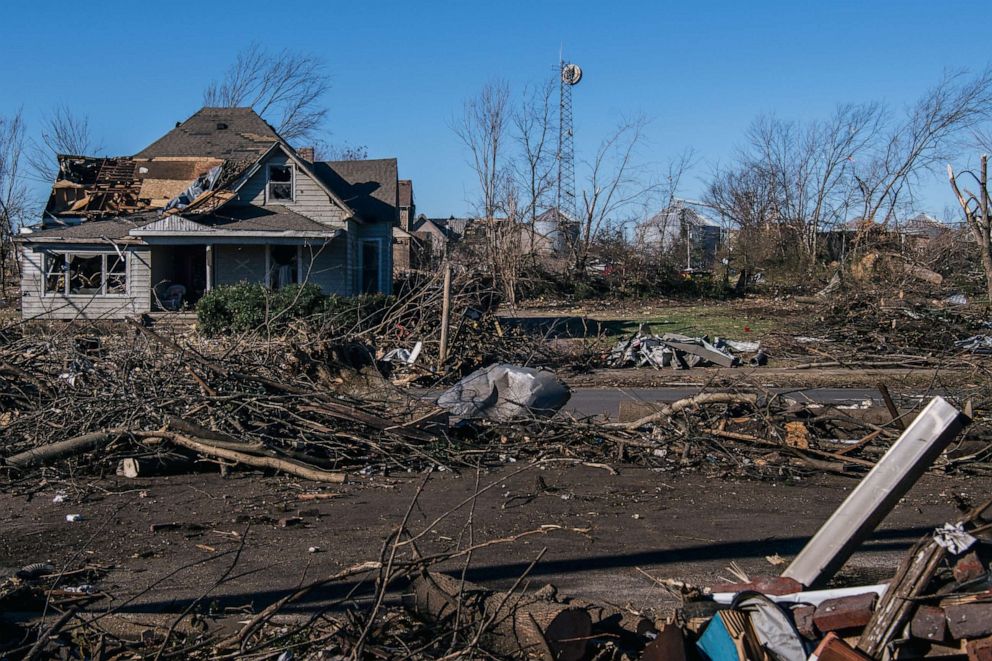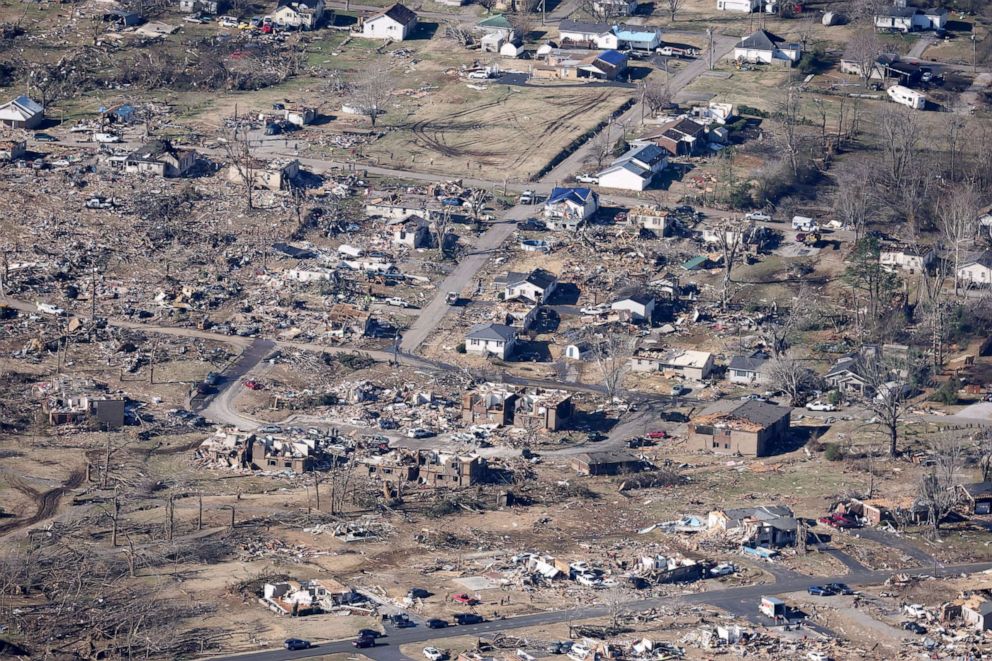What we know about the connection between tornadoes and climate change
Climate change is causing severe weather events. Does that include tornadoes?
Record-breaking tornadoes on late Friday and early Saturday left at least 88 people dead across five states in the South and Midwest, making it the most deadly tornado outbreak in the U.S. in more than a decade.
At least 40 tornadoes were reported across nine states, an unusually high amount for December.
These tornadoes raised many questions about the relationship between climate change and tornadoes. However, there is a lot that we do not know about the relationship between the two.
There are no studies that indicate climate change makes tornadoes stronger, worse or more frequent, ABC News Senior Meteorologist Rob Marciano said on ABC News' podcast "Start Here."
Of all the severe weather categories, tornadoes are the one that experts are the most uncertain about when it comes to a link to climate change, Marciano said.
"We know for sure [climate change] impacts floods, it impacts wildfires, certainly drought and heat waves, and in some cases, hurricanes. But we're just not sure about severe weather and tornadoes," Marciano said Sunday on "This Week with George Stephanopoulos."

One major issue in studying tornadoes, according to ABC News Chief Meteorologist Ginger Zee, is that we only have about 35 years of modern data. Reliable radar wasn't widespread until the late 1980s and the 1950s is when prolific reporting began.
The severe weather event shows climate change is altering where and when these storms happen, but it does not necessarily affect tornadoes' strength, Marciano said.
December is typically the quietest month of the year for the mid-South.
Kentucky has never seen multiple EF3 tornadoes in the month of December. EF3 tornadoes are defined as storms with wind gusts traveling at speeds of 136 to 165 miles per hour.
"We do see tornadoes in December, that part is not unusual, but at this magnitude, I don't think we've ever seen one this late in the year," Federal Emergency Management Agency Administrator Deanne Criswell said on CNN's State of the Union on Sunday. "The severity and the amount of time this tornado, or these tornadoes, spent on the ground is unprecedented."

The ingredients for what makes a tornado, heat, moisture, lift and wind shear, will also be increasing with climate change, Zee said. However, we just don’t yet have data to connect this event and won’t for a very long time.
Scientists do predict that “tornado alley” will begin to migrate towards the east, in the Mississippi and Ohio River Valleys, exactly where these storms hit over the weekend.
Zee also noted that as our cities keep growing, the more likely people will find themselves in the path of future tornadoes. Tornadoes do not avoid cities. There are outbreaks where we have just been lucky tornadoes have remained in unpopulated areas, she said.
When asked whether he thought climate change caused the severe weather event, President Joe Biden said he thought it "obviously" had an impact in terms of intensity.
Experts at FEMA said severe weather events will become more common due to climate change.
"This is going to be our new normal, and the effects that we're seeing from climate change are the crisis of our generation," Criswell said.
"We'll continue to work on helping to reduce the impacts, but we're also prepared to respond to any community that gets impacted by one of these severe events," Criswell said.
On a positive note, Zee said that despite no clear connection yet between the severity of tornadoes and climate change, meteorologists are getting better at forecasting severe weather.
"Our predictions have become incredible," Zee said. "We knew this would be a nocturnal outbreak of tornadoes (that can be 2.5 times as deadly) for days in advance."
ABC News' Tracy Wholf contributed to this report.




